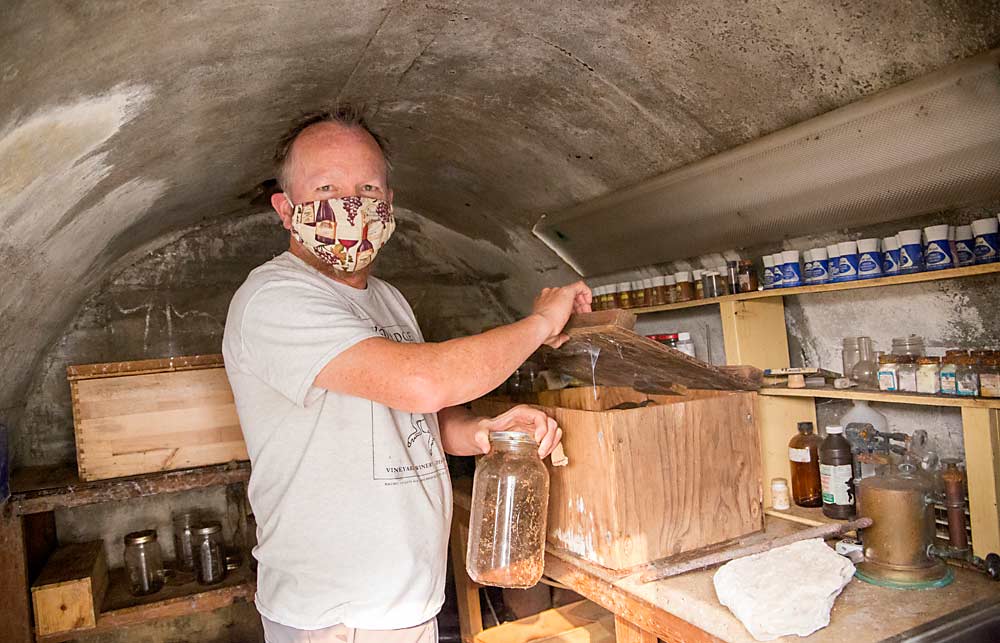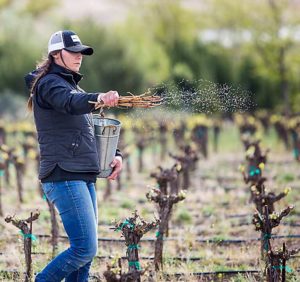
As a philosophy, biodynamic agriculture aims to create a farm that is a self-sustaining, living organism of its own, minimally dependent on outside inputs and respectful of all life.
The ideas are rooted in the 1924 teachings of Rudolf Steiner, an Austrian scientist and philosopher who preached the interaction of the spiritual and scientific to farmers as a counterpoint to the rising use of chemical pesticides and fertilizers.
Biodynamic practices are certified in the U.S. by the Demeter Association of Philomath, Oregon, which audits farms applying for the label, much like other agencies inspect for organic certification. Inspections typically cost $500 to $800, said Evrett Lunquist, Demeter’s director of certification. Certified wineries are assessed 0.6 cents per dollar for wine sales.
In fact, biodynamic requirements start the same as organic but take things further, according to Demeter’s 59-page Farm Standard certification handbook. For example, organic compost is not good enough. Soil nutrients should be generated on the farm, not purchased as bags of fertilizer, even organic brands. That’s why many biodynamic vineyards have goats, cows and chickens grazing in their rows.
The guidebook also mandates best practices for handling manure — such as heating and turning — to minimize pathogens and avoid contaminating waterways. Health and safety regulators require them to remove animals from the vines at a certain time before harvest, however.
Preparations — formulas of mixed herbs, soil, manure and minerals — make up a big part of biodynamic farming. Growers stir them in water to fling them over the vines and soil or add them to piles of compost, all to “kick start” the fertility of the soils, as one grower described it.
Two of the preparations involve cow horns, one of the most recognizable aspects of biodynamic farming. Each spring, growers pack a silica solution into cow horns, bury them over the summer and unearth them on the fall equinox, pouring out the silica to make preparations. Then, they repack the same horns with manure, rebury them over the winter and dig them up in the spring to start the cycle over again.
The horns provide “a connection to cosmos,” said Steven Thompson, owner of Analemma Wines of Mosier, Oregon, in the Columbia Gorge.
Biodynamic growers also time their planting, pruning and harvest by lunar cycles, using one of several published biodynamic calendars.
But the practices offer some flexibility, too. Some certified vineyards don’t have their own livestock and purchase manure and order premixed preparations instead of making their own.
—by Ross Courtney







Leave A Comment